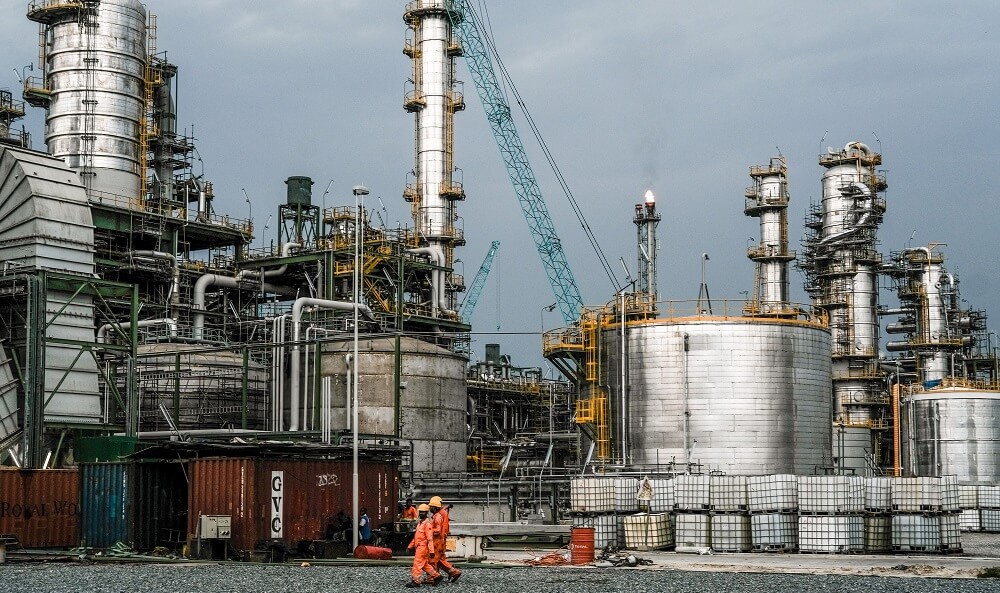The management of Dangote Petroleum Refinery and Petrochemicals has embarked on a sweeping reorganisation of its operations, terminating the employment of all staff following what it described as repeated acts of sabotage threatening the operational safety of the 650,000 barrels per day (bpd) facility.
In an internal memo dated September 24, 2025, and signed by the Chief General Manager, Human Asset Management, Femi Adekunle, the company said it was “constrained to carry out a total reorganisation of the plant” after recording “many recent cases of reported sabotage in different units of the Petroleum Refinery leading to major safety concerns.”
Advertisement
The refinery directed affected employees to hand over all company property to their line managers and await clearance before receiving entitlements, which the Finance Department will compute in line with their conditions of service.
A senior official of the company, who spoke to THE WHISTLER on condition of anonymity, explained that the move was not intended as a mass layoff but rather a strategic measure to root out internal threats and safeguard critical assets.
According to him, the decision was taken abruptly to prevent those allegedly involved in sabotage from concealing their tracks.
“This is more like a clean-up exercise to check where the sabotage and leakages are coming from. As soon as the issues are addressed, many of the affected staff will be reabsorbed. That is why the word ‘sack’ wasn’t used in the internal communication,” the official clarified.
Advertisement
He added that while the exercise appeared drastic, it was necessary to protect the refinery’s operations, stressing that such steps could not be preceded by advance notice without compromising the investigation.
He noted that despite the development, refinery activities are still ongoing, with both Nigerian and expatriate staff working at the facility to ensure production continuity.
The Dangote Refinery, Africa’s largest single-train oil refinery, was inaugurated in May 2023 and has been described as a strategic project for Nigeria’s energy security.
Its current restructuring underscores the operational challenges facing the multibillion-dollar investment as it moves closer to full commercial capacity.

